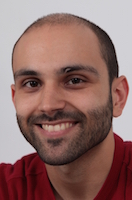SFP versus SFF: SFP awards small grants and service contracts for mission-aligned projects that don't yet have an institutional home; for larger grants to existing charities, visit SFF.
Update
As of August 29, 2022, Survival and Flourishing Projects has paused making individual grants and is considering adopting an RFP-based (Request for Propsal) model. Make sure to sign up for our newsletter below to be notified of any changes made!
Newsletter
Sign up to our newletter to be notified of future funded project rounds!
SFP-2021-Q2 funded project round
SFP has selected the winners of its second funded project competition. Here is the announcement.
SFP-2020-Q4 funded project round
SFP has selected the winners of its first funded project competition. Here is the announcement.
About SFP
Survival and Flourishing Projects (SFP) is itself a Sponsored Project of Social and Environmental Entrepreneurs, a 501(c)(3) public charity (proof of sponsorship; proof of charity status). SFP’s mission is to secure funding and fiscal sponsorship for projects that will benefit the long-term survival and flourishing of sentient life, including but not limited to humans.
SFP works closely with the Survival and Flourishing Fund (SFF), a donor advised fund with a similar mission and overlapping leadership. While we share no formal relationship with SFF, SFP and SFF have complementary functions:
- SFP as a general rule does not make grants to 501(c)(3) public charities, while SFF does, and
- SFF as a general rule does not make grants to individuals, while SFP does.
SFP’s website is currently under construction; when completed we will be ready to announce our first funding round.
FAQ
SFP General Questions
Q: “Is “X” project more likely to receive funding than “Y” project?”
A: We can’t say which is more likely until we’ve made our final decision. If you just want to know whether it would be appropriate to apply for a certain activity, then take a look at our announcement for the latest round for examples and guidelines for that round.
Q: “Can I work on two or more SFP projects at once?”
A: In short, no, although a single SFP project can involve multiple aspects (e.g., independent research + founding an organization). The reason we have a one-project-per-person policy is that we don’t want to have to juggle multiple relationships and sets of obligations with each winner separately.
Q: “Can I work on a SFP project at the same time as another job or project?”
A: Yes, but you will see on our application that we ask you to specify your time commitment to each.
Q: “What accessibility services does SFP offer?”
Due to the capcity available by our staff, accessibility services for applicants are less than those for winners. If while in the process of submitting your application you have a disability that prevents you from filling out the application yourself, we can offer to help you for up to 3 hours in the course of writing your application or various administrative work to aid in the application process.
Q: “I have something I want to add to my application. Can I email you my corrections and you add it to my application?”
A: No, although you can use the confirmation email you got from submitting your application to also submit changes to the application. Please don’t submit changes a large number of times, as this will be confusing for reviewers.
Q: “Since applying to SFP, I’ve been offered funding from another source to cover my project. Can I still receive some level of support from SFP?”
A: In short, yes, you can still receive support from SFP, though perhaps at a lower level. If you have a strong project proposal that appeals to two different funding sources, we believe you should be rewarded by receiving some amount of funding from each. The amount you receive from SFP should be less than the original amount you request, but not zero; by default, something between 50% and 80% is usually reasonable. In order to receive funding from SFP and another source at the same time, please notify SFP immediately, and if our selection committee is okay with funding you concurrently, we’ll ask you for a budget to explain how you’ll use the smaller funding amount, and review it for approval.
SFP Reporting Questions
Q: “Will you distribute any information in the report I send to you?”
Reports to SFP are SFP’s property. This means technically we can distribute them publicly if we want, but usually don’t, and if we want to distribute them publicly we will typically contact the author first to see if they have any reservations about it.
Survival and Flourishing Team



Job Opening: Grant Software Engineer ($220k/year) [closed]
We are looking to hire a software engineer at a starting salary of $220,000/year, to work full time on building grant recommendation software:
Job Posting: Grant Software Engineer
This position would work on app development full-time, reporting to SFP Director Andrew Critch, in collaboration with Oliver Habryka and others at Lightcone Infrastructure, Scott Garrabrant at the Machine Intelligence Research Institute, David Dalrymple at Protocol Labs, and several other interested parties. See the job posting for more details.